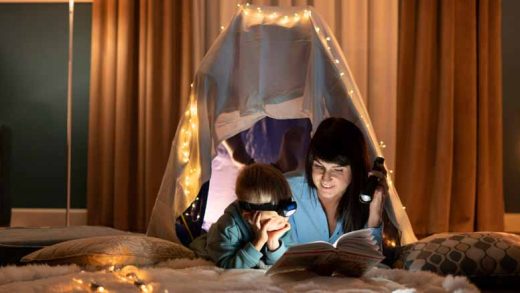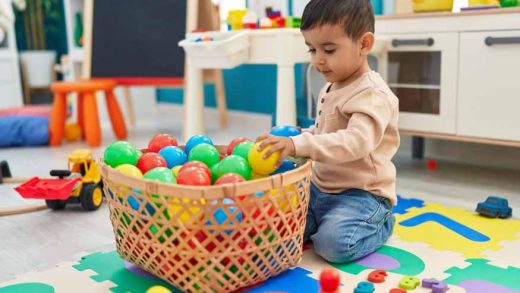How do you value yourself? Do you love yourself? The answer measures your self-esteem. Self-esteem is loving oneself and the belief in one’s abilities and attributes. Don’t misunderstand self-esteem as an attribute only for adults. It is an important aspect for our children. Our children must have this attribute. It forms the base for a confident individual.
Children’s self-esteem affects their self-confidence. It also affects their sense of identity, belonging, security, and competence. Children with good self-esteem have positive decision-making skills. It even impacts relationships, emotions, and well-being.
Self-esteem in Children
You may feel that self-esteem is something an individual acquires in adulthood. But it starts in childhood. Self-esteem in children begins at birth and grows in life. A baby’s self-esteem begins to form through physical interactions. These include touching, feeding, and hugging. Later, when they acquire language skills, they seek acceptance, encouragement, freedom, and praise. Children with higher self-esteem show higher levels of confidence.
Self-esteem in children promotes a sense of control over their activities. They feel respected and indulge more in independent activities. They are good decision-makers, too. Self-esteem in children helps them learn from mistakes. Self-esteem in preschoolers encourages them to try new things and build healthy relationships. They feel liked and confident.
Building self-esteem in Children
Self-esteem of children begins to grow when they get good care. They also need praise and acceptance from their parents. Then comes the role of educators. At school, teachers make sure to note and praise individual efforts. Kangaroo kids make an extra effort at it. They get love, care, freedom, and encouragement from their immediate environment. It makes them feel loved and accepted. Which in turn contributes to their self-worth or self-esteem.
While building self-esteem in children, parents and educators can:
- Encourage the child to try new things. Let them step out of their comfort zone. Let them explore new avenues, but make sure that it is safe for them. Don’t try to dictate everything to them. Treat them as an individual.
- Listen to the child’s needs and thoughts and acknowledge them.
- Help them to learn from their failures. Let the child understand that failures are inevitable. Learning from mistakes and making them right matters. Help them to rectify their mistakes. Give the child the freedom to make mistakes.
- Give responsibilities to the child.
- See each child as a unique individual.
Role of Parents
A child’s home is their first school. Parents play a major role in a child’s life. Your thoughts, activities, and speech create a profound effect on the child’s behaviour. Your role in building self-esteem in preschoolers is quintessential.
How can you improve self-esteem among preschoolers? Here are some tips:
- Help the child to do things in their own way:
- Encourage them to express their feelings:
- Praise the efforts they make:
- Give honest praise:
- Avoid using negative comments and comparisons:
- The power to make choices:
- Allow them to help with household chores:
You may show the child how to hold a pen, pencil, or cup. Let them do it their way. Help them. Don’t judge or ridicule them. Hands-on experience always creates an intense effect.
Give them an understanding environment to vent their emotions and feelings. Let them know that you hear and value their emotions and feelings. This improves their confidence.
It is easy to praise the result. But don’t turn a blind eye to the effort your little one has put in. Your praise for their effort can do wonders. This encourages them to do the task even better next time. Even if your child fails in a running race, just say, “The way you hold yourself till the end is remarkable”.
Even if you praise the effort, make sure that you are honest.
What your child hears can have a deeper impact on the child’s life. Don’t use harsh and negative comments on the child’s deeds. Comparing your child with another child can create a scar. Accept the fact that every child is unique. Even the siblings won’t act the same. Instead of comparing, embrace the uniqueness.
Let the kids make age-appropriate choices. If they wish to wear particular clothes for an occasion, let them wear them. Let them know that we hear and value their choices. This boosts their self-esteem.
Helping with household chores gives the children a chance to explore their new skills. Let them offer a helping hand in setting the table, cooking, and cleaning.
By looking into how to improve self-esteem in children, you might have understood that parents lay the foundation for self-worth. Schools and educators take it forward, making your child confident. Schools that offer a holistic environment can do wonders for your child’s self-esteem. Arranging timely activities and ensuring safety encourages children to take part.
Children enter school with little or no knowledge about the world outside. They learn to see the world through their school and teachers. They adore their teachers and want their educators to hear and acknowledge them. The positive feedback given by their educator helps them to create a better self. The timely activities, sports, and games serve as a way to foster their self-esteem.
It is important to choose the best preschool to make your child better. Kangaroo Kids International Preschool offers the best for your child. We ensure your little one is confident enough to express themselves before the world. To learn more about our education approach, contact us today!









